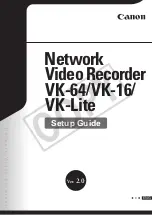
Radio
Adapter
Pag. 3/12
Radio
Adapter provides a cost-effective, reliable way of building cable-free communication networks between monitoring systems
and controllers or of extending existing networks.
Radio
Adapter features IEEE 802.15.4 standard functions and runs on ISM frequency band at 2.4GHz.
Thanks to MESH networking technology and associated dynamic routing combined with
Radio
Adapter capabilities to act as a
repeater for adjacent nodes, large surface areas can be covered, getting around blocked paths to send or receive messages and
continuous function guaranteed even when one or more nodes breaks down.
1.1 - REGULATIONS
Radio and telecommunications equipment: Directive 95/05/EC.
The use is permitted in the countries belonging to the European Economic Area (EEA) and where the FCC is recognized (see box).
FCC notes (only for model with internal antenna)
• This device complies with Part 15 of the FCC Rules. Operation is subject to the following two conditions: (1) this
device may not cause harmful interference, and (2) this device must accept any interference received, including
interference that may cause undesired operation.
• Unauthorized repairs, changes or modifications could result in permanent damage to the equipment and void
your warranty and your authority to operate this device under Part 15 of the FCC Rules.
•
NOTE
: This equipment has been tested and found to comply with the limits for a Class A digital device, pursuant
to part 15 of the FCC Rules. These limits are designed to provide reasonable protection against harmful
interference when the equipment is operated in a commercial environment. This equipment generates, uses, and
can radiate radio frequency energy and, if not installed and used in accordance with the instruction manual, may
cause harmful interference to radio communications.
Operation of this equipment in a residential area is likely to cause harmful interference in which case the user will
be required to correct the interference at his own expense.
IC note (only for model with internal antenna)
• This device is compliant to RSS 102
• Cet instrument répond aux normes RSS 102
1.2 - TECHNICAL DATA (EN 60730-2-9)
Class of use
Class 4 classification ISA SP100.11 (do not use for safety devices)
Network architectures permitted
star, tree and MESH
Protocols supported
Televis e Modbus RTU
Modbus configurations permitted:
serial speed: 9.600 / 19.200 bps
parity: Even / Odd / None
stop bit: 1
Frequency band
ISM 2.400 GHz...2.485 GHz (<10mW EIRP)
Channel selection
Automatic
Max. radio packet payload size
52 bytes
Antenna
2.4 GHz integrated, multidirectional or external
(only on RadioAdapter EXT models - see 1.4 Models and Accessories)
Maximum number of nodes per network
100
Maximum number of controllers per NODE
240
Maximum response time of radio
800msec (value to be added to the response time of the controller to calculate
transmission timeout)
Container
container: 3 plastic DIN modules
Mounting
on DIN guides
Operating temperature
-5...60°C
Storage temperature
-20...85°C
Operating and storage environment humidity
10...90% (non-condensing)
Serial connections
TTL port for connection to devices
RS-485 serial port (on two
Radio
Adapter /S models only)
Insulation class
2
Consumption
2W
Power supply
100...240 V
a
±10% 50/60Hz
1 -INTRODUCTION






























